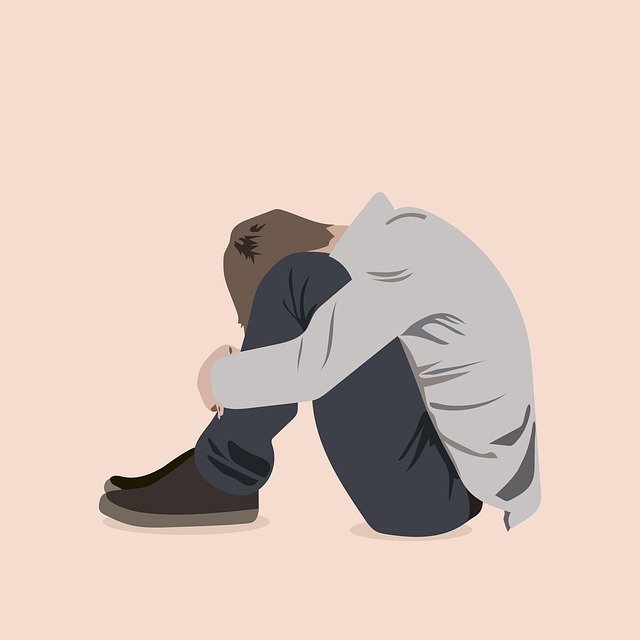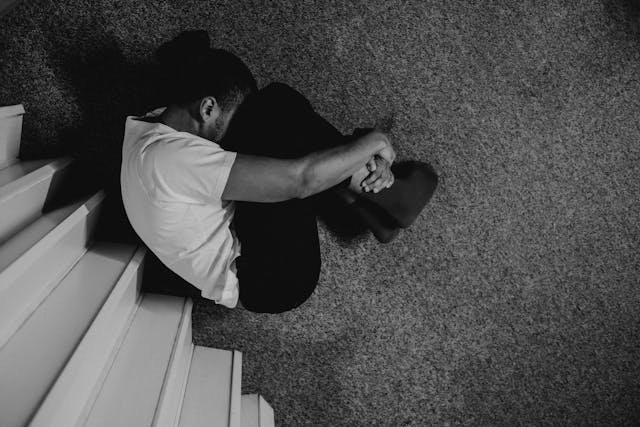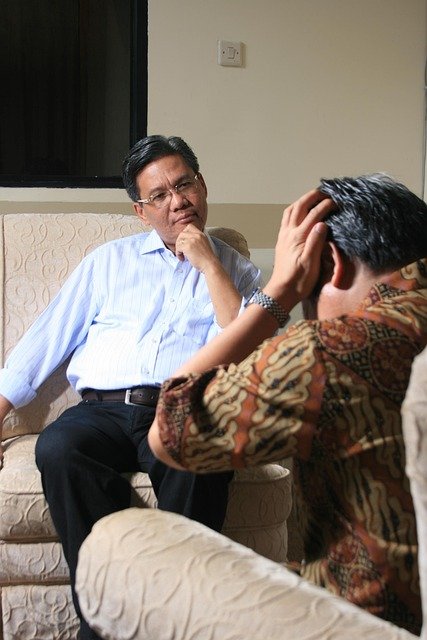
Broken Without Bruises
Imagine being systematically broken down, not with fists, but with words. Not with bruises, but with lies. Now imagine that when you finally speak up, you are labeled the problem. You are called unstable. You are painted as the villain in your own life story.
This is the reality for countless emotionally abused men invisible victims in a society that refuses to see them.
While the world rightly condemns violence against women, there exists a silent epidemic of psychological abuse against men that we dismiss, minimize, or worse blame them for. The patterns are chillingly consistent:
- The Isolation Playbook: His phone is monitored. His family connections are severed. His support system is methodically destroyed under the guise of “setting boundaries.”
- The Character Assassination: Every defense is twisted into aggression. Every plea for fairness becomes “control.” His natural reactions to abuse are framed as proof he’s the abuser.
- The Societal Betrayal: When he seeks help, he’s met with skepticism: “What did you do to provoke her?” “Men can’t be victims.” “Man up.”
We live in a culture where:
– A woman’s tears are evidence of pain
– A man’s tears are evidence of guilt
Where:
– Her anger is justified
– His frustration is “volatile”
Where:
– She’s believed without question
– He’s presumed guilty without proof
This is how abusers weaponize equality by exploiting society’s lingering bias that men are always the aggressors. They know the system will side with them. They know his suffering won’t count.
The Psychological Blueprint of Abuse: How Emotional Predators Systematically Destroy Men

The abuse of men follows a disturbingly effective psychological playbook, one that weaponizes societal biases and preys on masculine socialization. It begins with gaslighting not the dramatic, cinematic kind, but a slow, insidious erosion of reality. “You’re too sensitive” becomes the refrain that pathologizes his normal emotional responses. When he expresses hurt, he’s told he’s “misinterpreting.” When he sets boundaries, he’s accused of being “controlling.” This calculated distortion of reality serves a singular purpose: to make him doubt his own perceptions until he no longer trusts his judgment, leaving him psychologically disarmed and vulnerable to further manipulation.
The abuse escalates through social sabotage, a premeditated campaign to isolate him from potential allies. The abuser strategically plants seeds of doubt about his character among friends, family, and colleagues always framed as “concerns,” never outright accusations. By the time he realizes what’s happening, his support network has already been compromised. Former confidants now view him with suspicion, if they haven’t cut ties altogether. This isolation serves dual purposes: it deprives him of reality checks that could expose the abuse, and it positions the abuser as his only remaining “ally,” creating a toxic dependency.
Perhaps most devastating is how abusers exploit institutional and systemic biases against male victims. They leverage the cultural assumption that men are perpetrators, not victims, weaponizing everything from workplace HR policies to family court systems. A strategically timed false accusation becomes an irreversible stain on his reputation. A manipulative performance of victimhood in public settings ensures he’s presumed guilty before speaking. These institutional advantages give the abuser near-absolute power the power to define reality, to control narratives, and ultimately, to destroy lives with impunity.
This psychological warfare leaves men trapped in a devastating paradox: the more they resist, the more they “prove” the abuser’s narrative about their aggression. The more they comply, the more control they surrender. It’s a lose-lose scenario designed to break men down not through physical force, but through the systematic dismantling of their identity, relationships, and sense of self. The end result is a man who may still be standing, but who has been hollowed out from the inside doubting his worth, questioning his sanity, and bearing wounds that society refuses to acknowledge.
The Hidden Abuse No One Wants to Talk About

In many societies, men are expected to be the protectors, the providers, the emotionally steady ones. They’re taught not to cry, not to complain, not to “make a scene.” This expectation becomes especially dangerous in emotionally abusive relationships where a man’s pain is invisible, dismissed, or even mocked.
When a male victim tries to speak out, he is often met with suspicion, disbelief, or worse, blame. And some abusers know this. They weaponize it. They use gender stereotypes to flip the narrative. To claim they are the ones being controlled, mistreated, or endangered, even while they quietly chip away at the victim’s mental and emotional well-being behind closed doors.
Tactics Used to Flip the Script

Emotional abusers often rely on strategic manipulation to shift public perception:
- Playing the helpless role: Appearing fragile, emotional, or innocent in public while being controlling or cruel in private.
- Gaslighting: Making the victim question their memory, sanity, or even their moral compass.
- Preemptive strikes: Telling others that the victim is unstable, aggressive, or abusive before the victim has a chance to speak out.
- Isolating the victim: Turning friends, family, and even children against the victim through subtle misinformation or outright lies.
- Exploiting societal biases: Knowing that phrases like “he’s controlling” or “he’s angry” will be readily believed especially when said about men.
The Emotional Toll on the Victim

Being mislabeled as the abuser is not just painful, it’s devastating. It leaves the real victim:
- Isolated from support systems
- Afraid to seek help
- Trapped in a story that’s not their own
- And often, suffering in silence
This form of psychological abuse can lead to depression, anxiety, identity loss, and in some cases, even suicidal thoughts. When your truth is erased and replaced by someone else’s fiction, it’s not just confusing, it’s soul-crushing.
When They Rewrite Your Story: Defamation, Character Assassination, and Narrative Control

One of the most devastating tactics abusers use when flipping the script is the slow, deliberate erosion of the victim’s reputation often before anyone even realizes abuse is happening. This isn’t just about personal attacks. It’s about controlling the narrative.
They’ll twist facts, exaggerate minor conflicts, and plant seeds of doubt in the minds of others. Sometimes, they’ll even create entire stories designed to paint themselves as heroes or martyrs and the victim as a monster.
There is a special kind of violence that leaves no bruises but shatters souls, the systematic erasure of who you truly are. It begins subtly: a twisted version of events shared in confidence, an exaggerated flaw framed as a fatal trait, your best qualities recast as manipulation. Before long, the person you’ve spent a lifetime becoming is replaced by a grotesque caricature, stitched together from half-truths and outright lies. Friends you’ve known for years suddenly glance at you differently. Family members hesitate before returning your calls. Strangers who’ve never met you already “know” what kind of person you are because someone else has been writing your story for you.
The cruelest cut isn’t just the betrayal, but the helplessness of watching your identity be rewritten in real time, your voice drowned out by a chorus of false narratives. This is psychological murder, not of the body, but of reputation, relationships, and legacy. And for men especially, the world offers little recourse, because men are conditioned to “ignore the rumors” while their character burns to the ground. But silence isn’t strength; it’s surrender. The greatest rebellion is living so authentically that the lies eventually crumble under the weight of your truth.
This character assassination may include:
- Spreading lies and half-truths to friends, family, colleagues, and even the victim’s own children.
- Using emotional language like “He was always angry,” “He made me feel unsafe,” or “He was controlling” regardless of what actually happened.
- Telling their version of events first so that by the time the victim tries to speak, no one is willing to listen.
- Weaponizing vulnerability, tears, and public sympathy to make themselves look like the target.
These stories often dramatic, emotional, and tailored to align with common stereotypes make it almost impossible for the real victim to defend themselves. Because if they do, they risk being labeled as bitter, unstable, or vengeful.
And that’s the cruelest part: the victim not only suffers in private but is publicly erased, replaced by a version of themselves that was never real to begin with.
Why We Need to Talk About This

This isn’t about vilifying women or suggesting that women aren’t victims, far from it. This is about acknowledging that emotional abuse doesn’t discriminate. That men can be victims, too. And that the systems we rely on to protect people can sometimes be used as tools of harm when manipulation goes unchecked.
When we silence male victims or fail to believe them, we don’t just ignore their pain. We reinforce the very structures that allow abuse to flourish in the shadows.
What We Can Do?
- Listen without assumptions.
- Support without judgment.
- Educate ourselves and others on the many faces of abuse.
- Push back against gender stereotypes that define who “can” and “can’t” be victims.
- Believe people even when the story doesn’t match our assumptions.
The Truth Will Outlive the Lies

The cruelest injustice of psychological abuse is not just the suffering it inflicts in the moment, but the way it lingers like a stain on the soul that refuses to fade. When abusers flip the script, they don’t just manipulate the present; they poison the past and hijack the future, rewriting history with such cunning that even the victim begins to question their own memories. The isolation, the gaslighting, the calculated smear campaigns these are not impulsive acts of anger, but deliberate weapons in a war of attrition designed to break a man’s spirit, sever his connections, and erase his truth. Society’s complicity in this abuse is its own kind of betrayal, reinforcing the toxic narrative that men cannot be victims, that their pain is insignificant, that their cries for help are exaggerations or, worse, proof of their guilt.
But here is the unshakable truth: no amount of manipulation can change what is real. The love you shared with those who truly know you, the integrity with which you lived your life, the quiet acts of kindness you thought no one noticed, these are the things no abuser can steal, no lie can tarnish. The scars you carry are not marks of shame, but proof of survival. And while the world may have been slow to recognize your suffering, your resilience has already rewritten the ending they tried to force upon you.
To every man who has endured this silent war: your voice matters. Your pain is valid. Your story deserves to be heard. The road to healing is long, and justice may come in fragments, but take heart in this, the abuser’s greatest fear is the day the world finally sees you again. Not the villain they invented, but the man you always were. The one who loved deeply, fought quietly, and refused to let their lies become your legacy. That man is still here. And he is not alone.
The script was flipped, but the story isn’t over. Truth, like light, has a way of breaking through even the most carefully constructed darkness. Hold on. Speak out. Reclaim your name. The world needs to hear what you’ve been forced to swallow for far too long.
If you or someone you love is navigating emotional abuse, know this: your pain is real. Your story matters. And you are not alone.
By shining a light on these hidden dynamics, we hope to give voice to those still in silence. To tell the truth, even when it’s complicated. Especially when it’s complicated.
—Banchu (Nama)